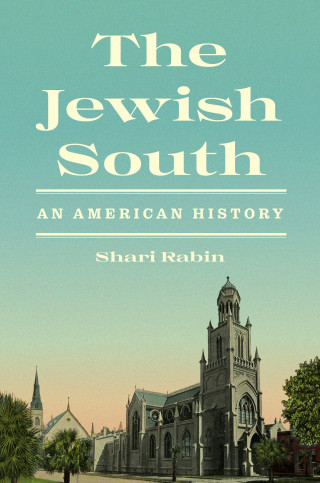Recent books by Geoffrey Levin and Marjorie Feld have highlighted, however, that American Jews have always been fractured on Zionism. This has been the case for Jews in the American South, the subject of my new book. In the U.S. region understood to be the most provincial, Jews often entered heated debates about the Middle East, which were rooted in local communities and influenced by complex racial politics. In the 1940s South, Jews’ desire to stay on the white side of the color line shaped Zionism’s reception.
Jews have lived in the American South since the end of the 17th century, arriving in waves of migration from different parts of Europe. By the end of the 19th century, there were dozens of Jewish communities from Virginia to Texas—in places haunted by discrimination, segregation, and violence against Black residents. Jews, too, were often marginalized. Many Southerners, inspired by intense Christian piety, understood Jews to be damned. They also associated them with foreigners, the alcohol trade, and mercantile professions—suspicious threats to the Southern way of life. While racial discrimination and Christian domination existed elsewhere, in the South they were particularly intense. The Ku Klux Klan murdered three Jews during its wave of anti-Black violence in the 1870s, and in 1915 a white mob lynched a Jewish factory manager named Leo Frank, who had been convicted of murdering a young female employee.
In an environment where difference could lead to horrific violence, Southern Jews usually presented themselves as white citizens who happened to attend a different church, rather than as members of a transnational people. In their free time, Jewish men joined masonic and civic groups that brought them into regular contact with Christian men. They increasingly offered Sabbath prayers in English, without traditional head coverings, and even on Sundays.
These were all hallmarks of the Reform movement, which sought to modernize traditional Judaism—and explicitly rejected the idea of a “return to Palestine,” as a group of American Reform rabbis wrote in 1885. They argued, “We consider ourselves no longer a nation, but a religious community,” fully at home in the United States.
Southern congregations were noticeably overrepresented in the Reform movement. It followed that Zionism’s reception among Southern Jewish leaders was initially tepid.
And yet Zionist organizations began to gain a foothold in the South, especially after Yiddish-speaking Jews arrived there en masse beginning in the 1880s. This group included more religious traditionalists and political radicals than their predecessors from Western Europe, and more of them believed that their coreligionists needed another safe haven from European antisemitism.
So, debates raged. In 1946, the rabbi of Kahal Kadosh Beth Elohim, a Reform congregation in Charleston, South Carolina, retired—just four years after Houston’s Beth Israel’s Barnston. Rabbi Jacob Raisin, however, an immigrant from Russia, had been a prominent Zionist.
